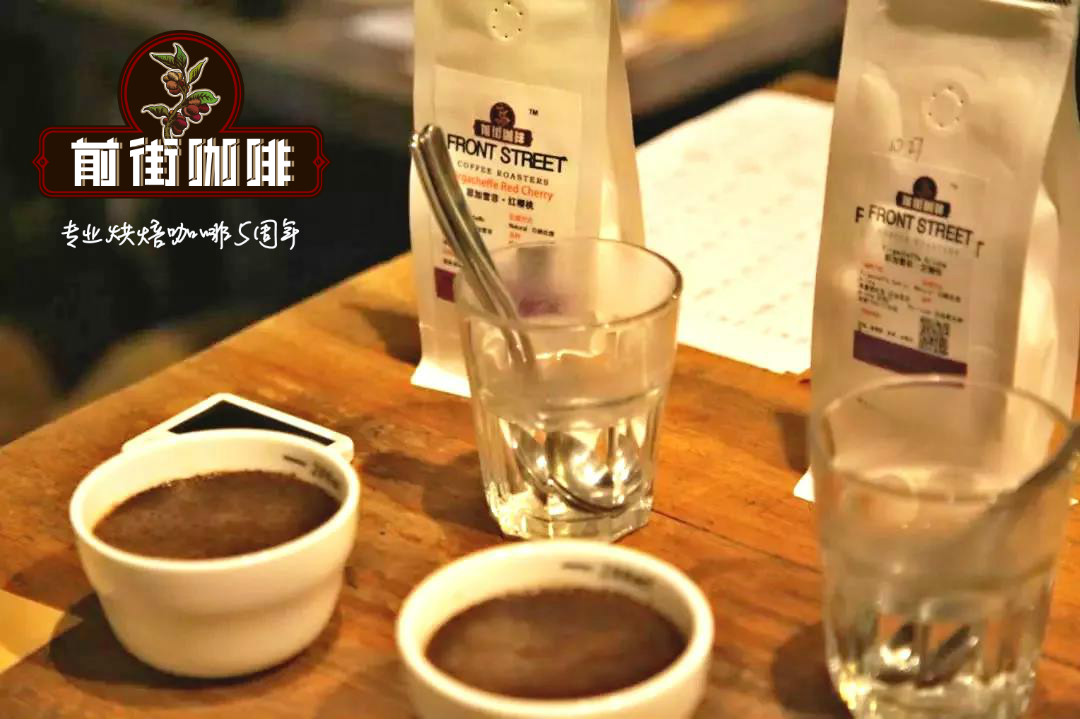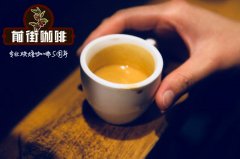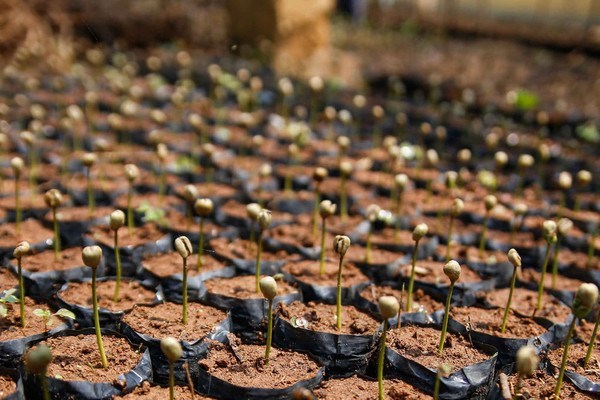What about the astringent coffee? why does the coffee have astringent boutique coffee cup test?

Professional coffee knowledge exchange more coffee bean information please follow the coffee workshop (Wechat official account cafe_style)
The astringent taste of coffee is different from the sweet and sour taste, it is not a kind of taste.
Strictly speaking, it should be called "astringency", which is the "roughness" created by polyphenols in food in the mouth.
Polyphenols exist in many kinds of fruits, tea, red wine, chocolate and coffee. Chlorogenic acid, tannin and catechin all belong to polyphenols.
The main source of the astringency of coffee is the "dicaffeoylquinic acid" which is degraded into "dicaffeoylquinic acid" by the "chlorogenic acid" contained in raw beans.
The other part comes from the tartaric acid contained in coffee beans.
The astringency of coffee is related to the variety of coffee beans, the quality of raw beans and the quality of baking technology.
The content of chlorogenic acid in Robusta coffee beans is higher than that in Arabica beans, accounting for 7% of the soybean weight and 10% of the bean weight.
Arabica accounts for only 5.5% of the soybean weight, Murray 8%, so roasting produces more "dicaffeoylquinic acid".
Raw coffee beans of poor quality, especially immature coffee beans, also contain high levels of chlorogenic acid.
If the baking method is incorrect, it is easy to derive more "dicaffeoylquinic acid".
In terms of raw bean quality, there are two main reasons for astringency:
1. Raw bean varieties contain too much chlorogenic acid (such as Luodou and related hybrid varieties)
2. The defect rate of raw beans is too high (such as immature beans and heterogeneous beans)
Astringency is caused by special chemicals in coffee, which can make your mouth and teeth feel dry. The dryness of coffee is usually very similar to the feeling in the mouth when eating raw apples and bananas. But judging from experience, high-quality coffee will never make you feel dry after drinking it.
Generally speaking, the purpose of cup testing of coffee is to determine the flavor of the coffee and decide whether to buy it or how to bake the highest quality of the coffee.
Negative astringency will expose defects in the quality of coffee, but in fact, there is also a good astringency in coffee, and high-quality astringency is sometimes a symbol of coffee quality.
In the baking process, the reasons for astringency are complicated. It is generally believed that the "dehydration period" is too short, that is, the dehydration is insufficient, and the beans (bean core) are not ripe. In addition, according to Master Taguchi, chlorogenic acid stays too long in the process of "water decomposition" and produces excessive caffeic acid and quinic acid, resulting in bitterness.
So, what are the circumstances that usually lead to the astringency of brewed coffee?
In order to eliminate the effect of defective beans on cooking quality, we often encounter sour and bitter conditions in daily cooking. The main reasons are:
1. The water temperature is on the high side (or there is a heat source to heat the water temperature continuously)
2. The water temperature is too low (or the hot water loses temperature too fast)
3. Stirring too much (or too fast)
4. the grinding degree of coffee powder is too fine (or too much ultra-fine powder).
5. The grinding degree of coffee powder is too rough.
If you want to improve the astringency of coffee brewing, try lowering (raising) the water temperature or thickening (fine) the grinding scale. If there is no way to improve after the real adjustment, it may be a problem with the quality and baking methods of the beans.
Important Notice :
前街咖啡 FrontStreet Coffee has moved to new addredd:
FrontStreet Coffee Address: 315,Donghua East Road,GuangZhou
Tel:020 38364473
- Prev

Description of the flavor characteristics of coffee from Catova Manor in Panama and introduction to the manor.
The founder of the manor, McIntyre, who was originally Canadian, had a very prominent political status in his hometown, but had a strong desire for a busy and busy life. One day in 1918, he read a report about Pocket in Panama in Central America. The report details that there is a secret that is cool all the year round next to the mysterious volcanic slope. So his curiosity
- Next

How important is the variety of coffee? Take an inventory of the main types of coffee you need to know!
Professional coffee knowledge exchange more coffee bean information please follow the coffee workshop (Wechat official account cafe_style) in the wine, the variety of grapes has a far-reaching impact. You probably know Merlot or Chardonnay. But people don't know much about the variety of coffee. You may also know Rose Summer Coffee, but do you know the difference between bourbon and tin pickup? Or these varieties are
Related
- Detailed explanation of Jadeite planting Land in Panamanian Jadeite Manor introduction to the grading system of Jadeite competitive bidding, Red bid, Green bid and Rose Summer
- Story of Coffee planting in Brenka region of Costa Rica Stonehenge Manor anaerobic heavy honey treatment of flavor mouth
- What's on the barrel of Blue Mountain Coffee beans?
- Can American coffee also pull flowers? How to use hot American style to pull out a good-looking pattern?
- Can you make a cold extract with coffee beans? What is the right proportion for cold-extracted coffee formula?
- Indonesian PWN Gold Mandrine Coffee Origin Features Flavor How to Chong? Mandolin coffee is American.
- A brief introduction to the flavor characteristics of Brazilian yellow bourbon coffee beans
- What is the effect of different water quality on the flavor of cold-extracted coffee? What kind of water is best for brewing coffee?
- Why do you think of Rose Summer whenever you mention Panamanian coffee?
- Introduction to the characteristics of authentic blue mountain coffee bean producing areas? What is the CIB Coffee Authority in Jamaica?

